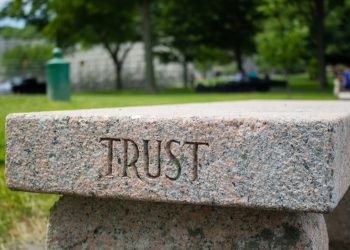No products in the cart.
Mastering Workplace Conflict: Strategies for High Performers
Explore how high performers can navigate workplace conflict effectively while preserving relationships and reputation, ensuring continued success.
San Francisco, USA — Workplace conflict is as inevitable as the fog rolling in over the Golden Gate Bridge. Even the most stellar high performers can find themselves caught in the crossfire of misunderstandings, differing opinions, and competing priorities. When the stakes are high, and reputations are on the line, how can one navigate these turbulent waters without capsizing their career ship?
When we think about conflict, our minds often drift to tense moments in boardrooms or heated discussions in open-plan offices. Yet, conflict can also manifest in subtle ways, from passive-aggressive emails to unspoken tensions that linger in the air like a thick haze. For high performers, managing these conflicts is not merely a matter of maintaining peace; it’s about preserving relationships and protecting their hard-earned reputation while ensuring their performance remains unaffected.

understanding the fundamental causes of workplace conflict is the first step toward resolution. According to a recent study by the American Management Association, misunderstandings and poor communication are the primary culprits behind workplace disputes. These issues can be exacerbated in high-pressure environments where expectations are sky-high and the competition is fierce. As high achievers, the pressure to maintain a flawless record can make conflicts feel particularly daunting.
 Artificial Intelligence
Artificial IntelligenceTransforming HR: How Startups Leverage AI for Hiring and Growth
From recruitment to performance tracking, AI is transforming how startups approach HR. Explore its impact and emerging careers in this…
One powerful strategy for navigating workplace conflict is emotional intelligence. This skill, once considered a soft factor, is now recognized as a crucial element of leadership. High performers with strong emotional intelligence can tune into the emotions of others, facilitating open dialogue and fostering a climate of trust. For instance, consider Jane, a marketing manager who faced a disagreement with her team over the direction of a crucial campaign. Instead of bulldozing through with her vision, she took a step back and facilitated a discussion where everyone could voice their concerns. This not only resolved the immediate conflict but also strengthened her team’s cohesion.
This skill, once considered a soft factor, is now recognized as a crucial element of leadership.
Another vital aspect is the art of active listening. In the heat of disagreement, it’s easy to focus solely on what you want to say next. Yet, by truly listening to the other party, you pave the way for empathy and understanding. A study published in the Harvard Business Review shows that leaders who practice active listening are more likely to foster a collaborative environment. They create a space where team members feel valued and understood, which can significantly reduce tensions.
Moreover, high performers should also embrace a problem-solving mindset. Rather than viewing conflict as a personal affront, they can frame it as an opportunity for growth. This shift in perspective transforms the narrative from ‘us versus them’ to ‘how can we solve this together?’ For example, during a recent project, a tech startup faced a significant disagreement between its developers and designers over the product’s user interface. Instead of letting the conflict fester, the team organized a workshop where both sides could present their viewpoints and collaborate on a solution, ultimately leading to a more innovative product.
However, not all conflicts can be resolved through dialogue and collaboration. There are times when high performers need to assertively stand their ground. This is particularly true in situations where ethical considerations are at play. A well-known case involved a sales executive who discovered unethical practices within her team. Instead of turning a blind eye, she chose to confront the issue head-on, despite the potential backlash. Her decision not only preserved her integrity but also led to meaningful changes in company policy.
 Art
ArtHow Microbrands Are Shaking Up Traditional Retail
Microbrands are changing the retail game by focusing on authenticity and niche markets. Learn how this impacts your career and…
Read More →It’s essential for high performers to also consider the impact of their actions on their overall reputation. In a world where professional networks can be tenuous, a single conflict can ripple through an entire career. Maintaining professionalism during disputes is crucial. This means avoiding personal attacks, keeping emotions in check, and focusing on the issue rather than the individual. In doing so, you not only protect your reputation but also demonstrate leadership qualities that others will respect.
As we move into an increasingly complex and interconnected work environment, the ability to navigate conflict will be a defining skill for high performers. The rise of remote work and global teams means that misunderstandings can escalate quickly when communication is not face-to-face. High performers must adapt by leveraging technology to facilitate transparent communication and using collaborative tools that promote inclusivity.
In a world where professional networks can be tenuous, a single conflict can ripple through an entire career.
Looking forward, the workplace will continue to evolve, and so will the nature of conflicts. The future belongs to those who can embrace change, adapt their strategies, and maintain their composure under pressure. As the landscape shifts, high performers will need to hone their skills in conflict resolution, not only to preserve their own success but also to uplift their teams and organizations in the process.
 Career Development
Career DevelopmentHow Extracurricular Activities Boost Medical Students’ Literacy
Extracurricular activities significantly enhance the literacy skills of medical students, with self-efficacy acting as a crucial mediator.
Read More →In an era where collaboration is the name of the game, the ability to resolve conflicts constructively will not just be a competitive edge; it will be a necessity. By cultivating emotional intelligence, practicing active listening, and adopting a problem-solving mindset, high performers can transform conflict into a catalyst for innovation and growth. The future of work may be uncertain, but one thing remains clear: those who master the art of conflict resolution will undoubtedly lead the charge into tomorrow’s workplace.











